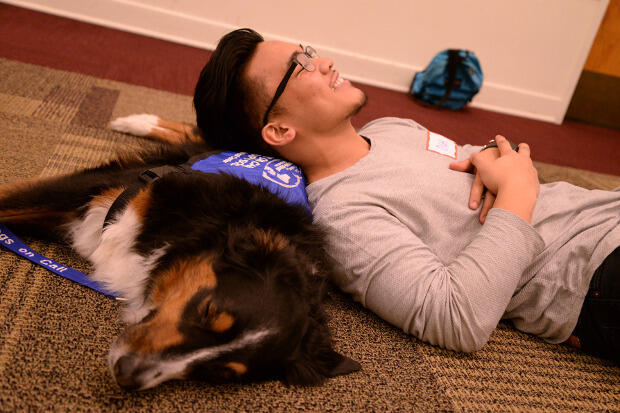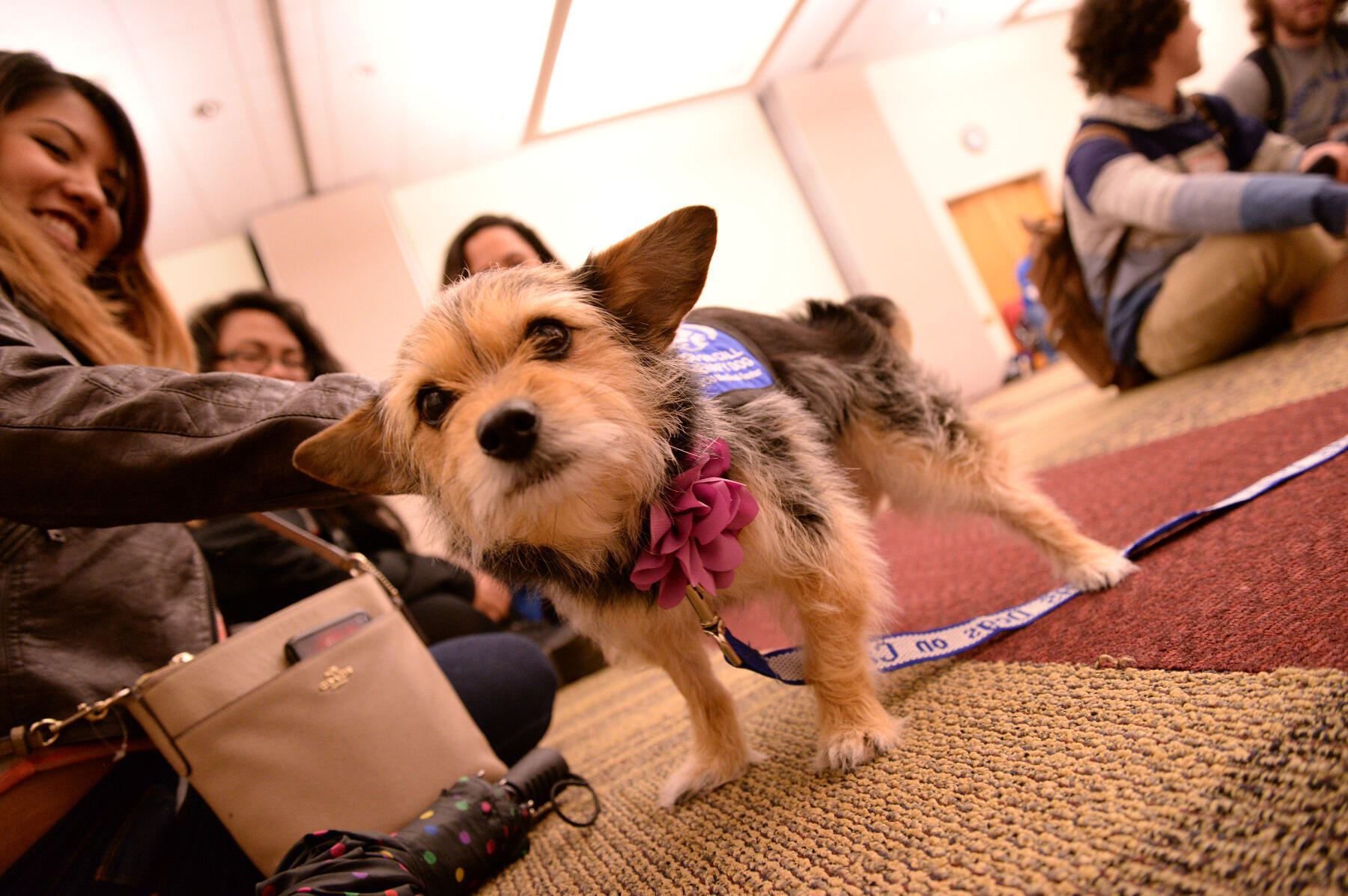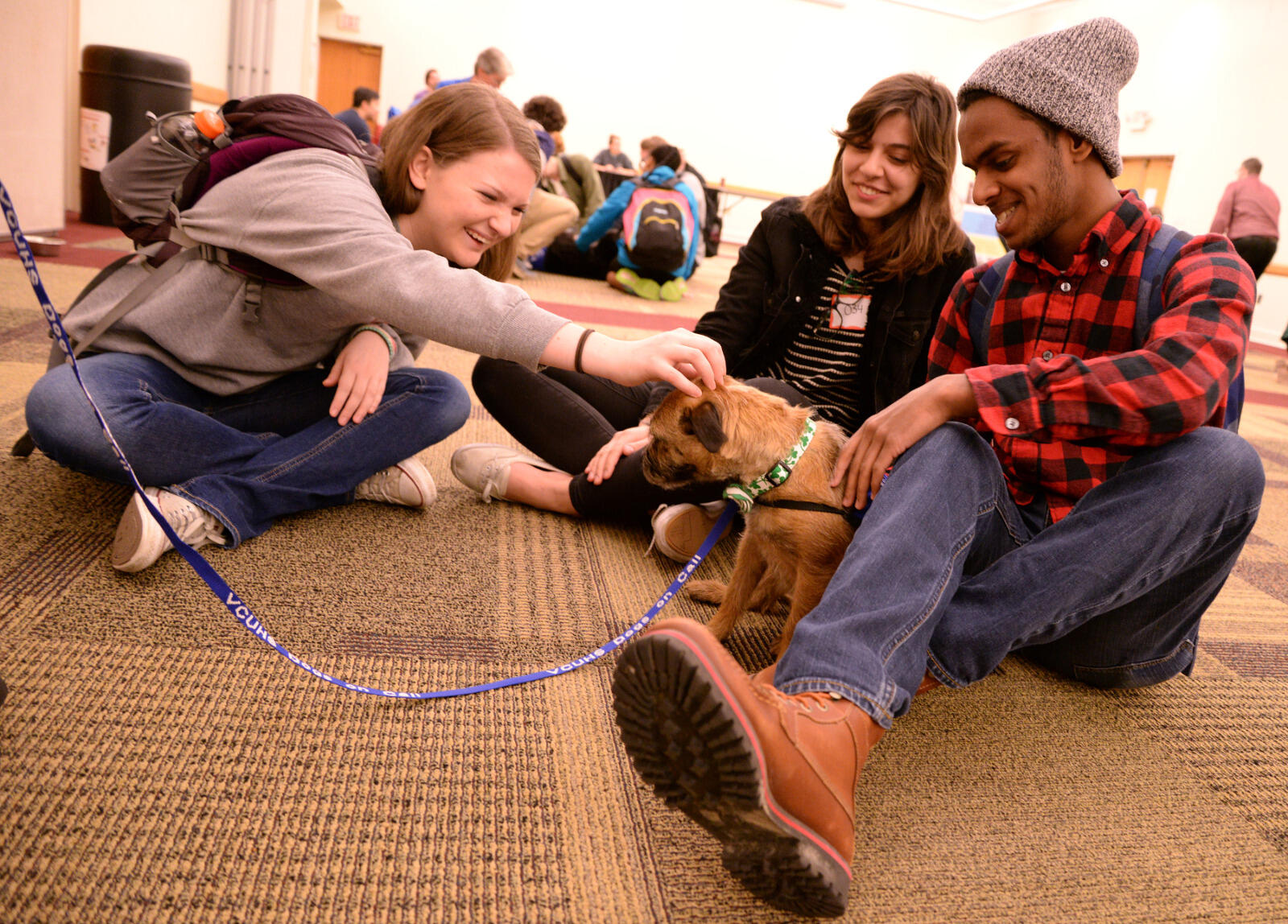
<br>Pat Kane, University Public Affairs
March 15, 2016
VCU study finds college students feel less stress prior to exams after visits with therapy dogs
Share this story
An interdisciplinary research team at Virginia Commonwealth University has found that visits with therapy dogs significantly reduce students’ perceived stress during final exam week. The study is the latest in a growing body of evidence that supports the health benefits of interacting with companion animals. Researchers at the VCU Center for Human-Animal Interaction have been producing influential data on the topic since 2001.
Bringing therapy dogs onto campus is a low-cost intervention that doesn’t have any side effects.
“Bringing therapy dogs onto campus is a low-cost intervention that doesn’t have any side effects,” said first author Sandra Barker, Ph.D., CHAI director and professor of psychiatry at the VCU School of Medicine. “This study should serve as encouragement for other universities to consider activities with therapy dogs as a way to help address stress before final exams.”
The study, “A Randomized Cross-Over Exploratory Study of the Effect of Visiting Therapy Dogs on College Student Stress Before Final Exams,” was published in Anthrozoos, the official journal of the International Society for Anthrozoology, on March 8.
The randomized controlled study investigated the effect of visiting therapy dogs on 78 college students’ perceived and physiological stress levels during the week prior to fall semester final exams. Students interacted with the therapy dogs for 15 minutes and spent 15 minutes in a control condition, which was a neutral setting without dogs.
“It didn’t matter whether they were in the control condition first or with the dogs first, there was a significant stress reduction with the dogs either way,” Barker said. While the study did not find a reduction in physiological stress indicators such as salivary nerve growth factor, it did find a significant difference in perceived stress.

Pat Kane, University Public Affairs
“Perceived stress is an important indicator of stress,” Barker said. In previous studies, elevated exam stress has been associated with increased tension and depression, poorer academic performance and lower student expectations of their grades. Exam stress has also been negatively associated with immune function.
“Stress is a major problem for college students and exams are considered one of the major stressors,” Barker said. Providing students with an opportunity to interact with visiting therapy dogs on campus can serve as a low-cost outreach intervention that is easily accessible to students and requires few professional resources.
The CHAI research team is currently researching the effect of having therapy dogs present during final exams and hopes to design a study in the near future that scientifically determines whether having a dog present reduces stress during an exam and has an impact on academic performance. Already, the team has documented scientific evidence of reduced stress among health care professionals after brief interactions with therapy dogs, reduced anxiety and fear in psychiatric patients at hospitals after interactions with therapy dogs and reduced stress in the workplace among people who bring their dogs to work.
“We have been helping to build the evidence base for health benefits of interacting with companion animals,” Barker said. “This is just another part of our series of studies trying to help build that evidence base both with clinical populations like our patients at the hospital as well as nonclinical examples like the students and employees at work.”
Co-investigators on the study include Randolph T. Barker, Ph.D., VCU School of Business; Nancy L. McCain, Ph.D., VCU School of Nursing; and Christine M. Schubert, Ph.D., Air Force Institute of Technology.

Pat Kane, University Public Affairs
Subscribe to VCU News
Subscribe to VCU News at newsletter.vcu.edu and receive a selection of stories, videos, photos, news clips and event listings in your inbox.









